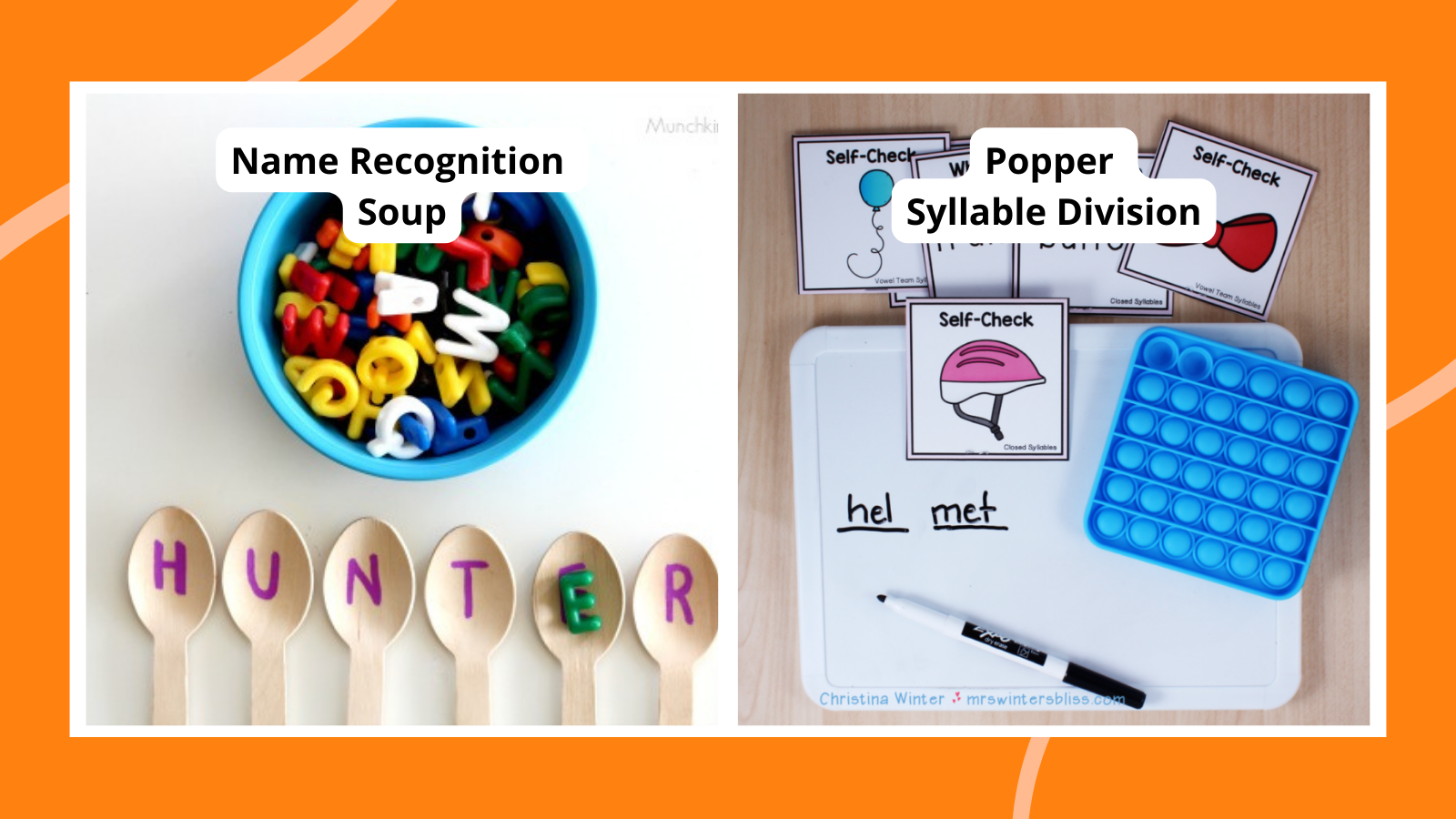Reading in the classroom can be so much fun. We all work hard to plan robust literacy instruction, but who said we couldn’t have a little fun with it? Check out these engaging and enriching reading activities, ranging from preschool to upper elementary and beyond. We guarantee both you and your students will appreciate these outside-the-box ideas and games to help readers practice and strengthen their literacy skills.
Reading Activities for Preschoolers
1. Sing songs and nursery rhymes
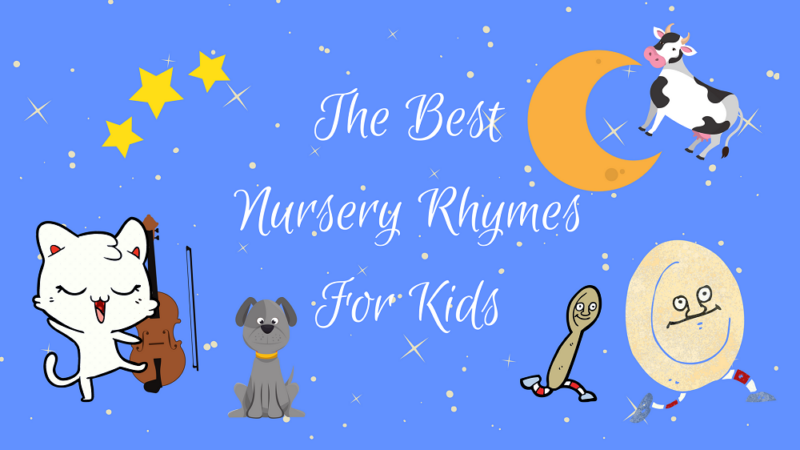
Rhyming is part of phonological awareness, which is one of the essential building blocks of early literacy. Nursery rhymes are entertaining to sing and learn, while they encourage students to listen closely to the sounds in words. English-language learners will also benefit from the extra vocabulary practice and repetition.
Learn more: 30 Popular English Nursery Rhymes for Kids in English at Bilingual Kidspot
2. Read Aloud
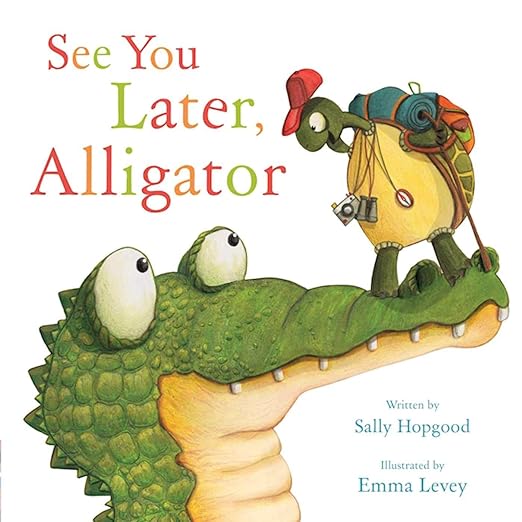
This tried and true activity never gets old, and it’s one of the most valuable activities we can do with kids. With so many wonderful picks for the preschool audience, you’ll make your students laugh and help them learn valuable lessons about the world and their lives.
3. Goldfish crackers alphabet tracing
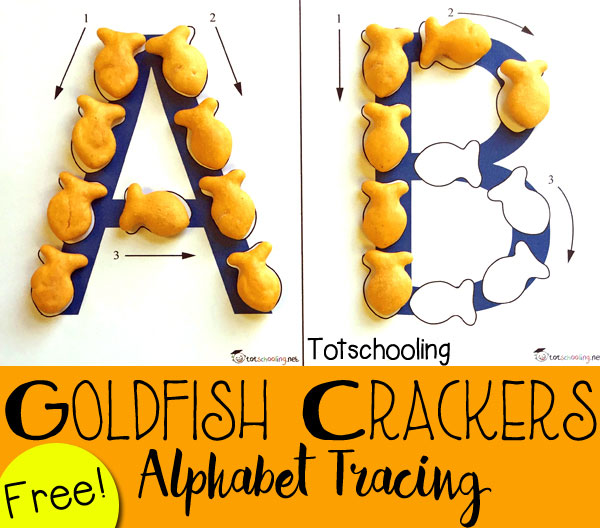
Effective and delicious! These printables will get preschoolers excited about learning how to form their letters while they get ready for snack time too.
Learn more: Goldfish crackers alphabet tracing at Totschooling
4. Dot the syllables
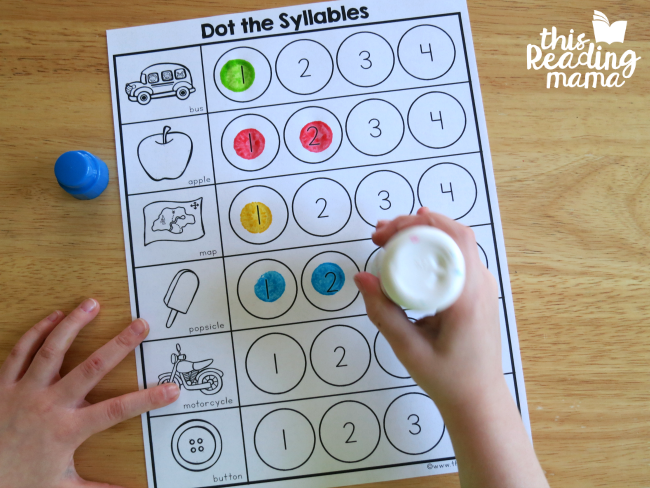
Understanding that words are made up of syllables is an important concept for early readers to grasp. Preschoolers can have some fun practicing identifying and marking how many syllables there are in familiar words.
Learn more: Syllable worksheets – dot the syllables at This Reading Mama
5. Alphabet play dough
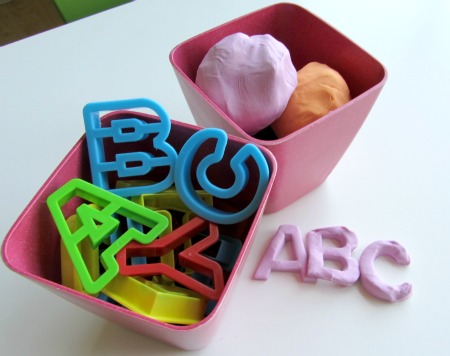
Play dough is an ever-popular activity for the younger set. Encourage letter recognition with this hands-on activity that will keep them endlessly entertained while they learn, a win-win!
Learn more: Alphabet playdough – alphabet for starters at No Time for Flash Cards
6. Name recognition soup
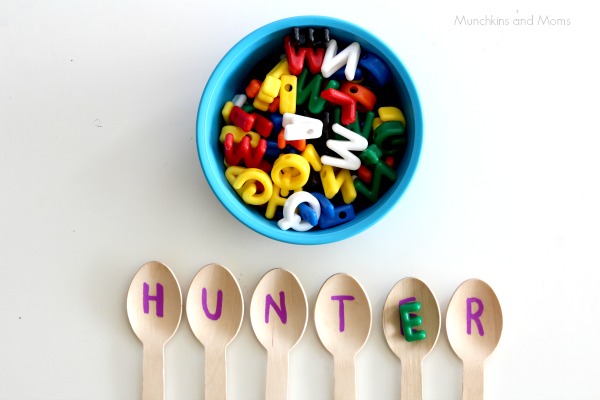
Building names is one of our favorite early reading activities, and the possibilities are endless! This alphabet soup version will be a hit with your littlest learners who need a little extra practice.
Learn more: Name Recognition Soup at Play Teach Repeat
Reading Activities for Kindergartners
7. Alphabet SWAT! Letter Game
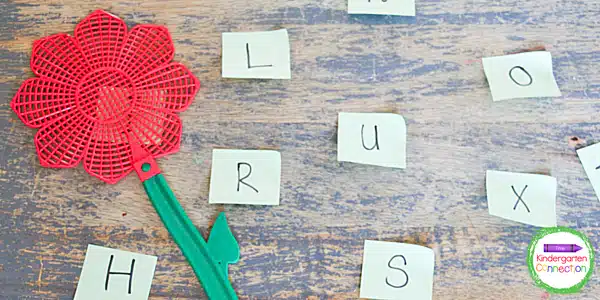
Letter recognition is a very important skill for setting up early readers for success. Students will adore swatting letters to practice automaticity and identifying letter names at lightning speed.
Learn more: Alphabet SWAT! Tabletop Version at The Kindergarten Connection
8. Sight word fluency practice
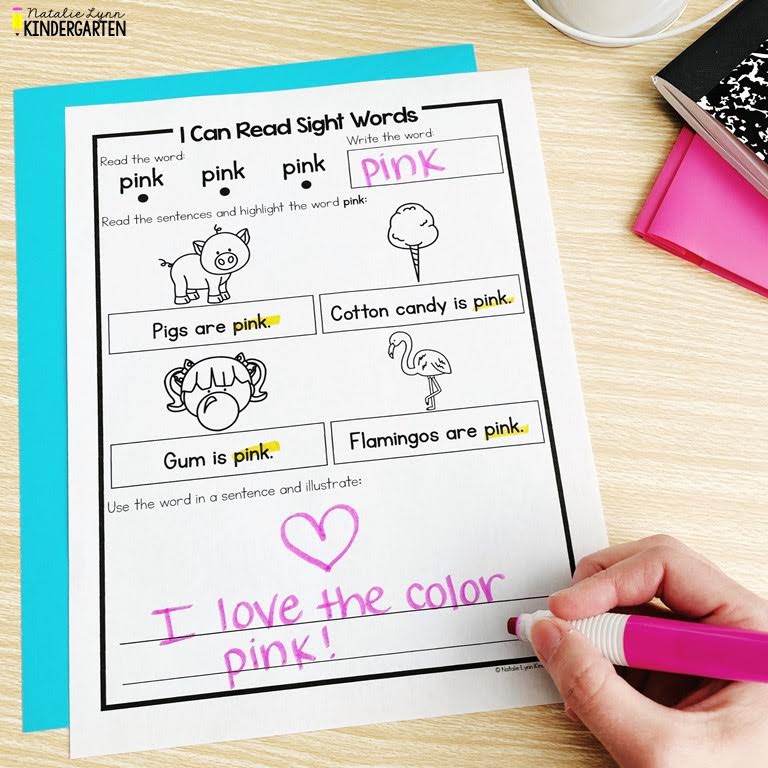
With the right touch, sight words can be super fun. These printables make teaching them a breeze.
Learn more: Sight Word Fluency Practice at Natalie Lynn Kindergarten
9. Fish and build CVC words game
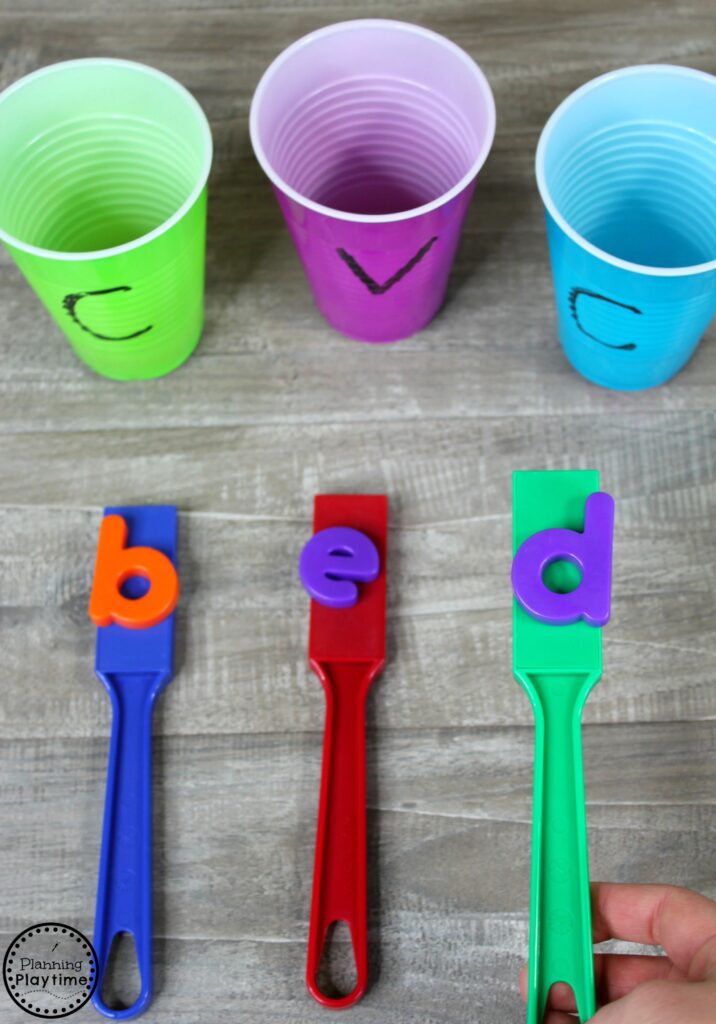
We love this creative way to practice CVC words. Mastering CVC word blending is an important kindergarten literacy skill and students will want to do this one again and again.
Learn more: Fish and Build CVC Word Game at Planning Playtime
10. Beginning sounds mail sort and song
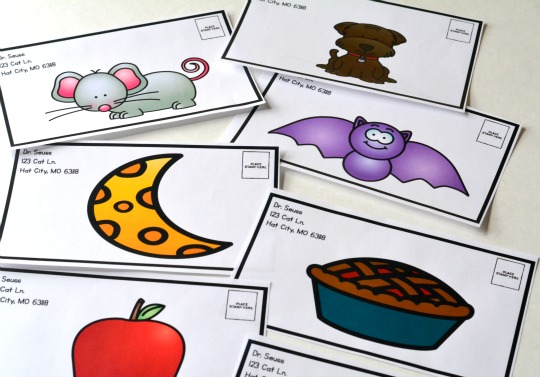
Who doesn’t love sending and receiving mail? This beginning sound activity is perfect for practicing hearing initial sounds while pretending to be a mail delivery person. The rhyming song is a fun little bonus!
Learn more: Beginning Sounds Mail Sort and Song at Growing Book by Book
11. Picture sorts
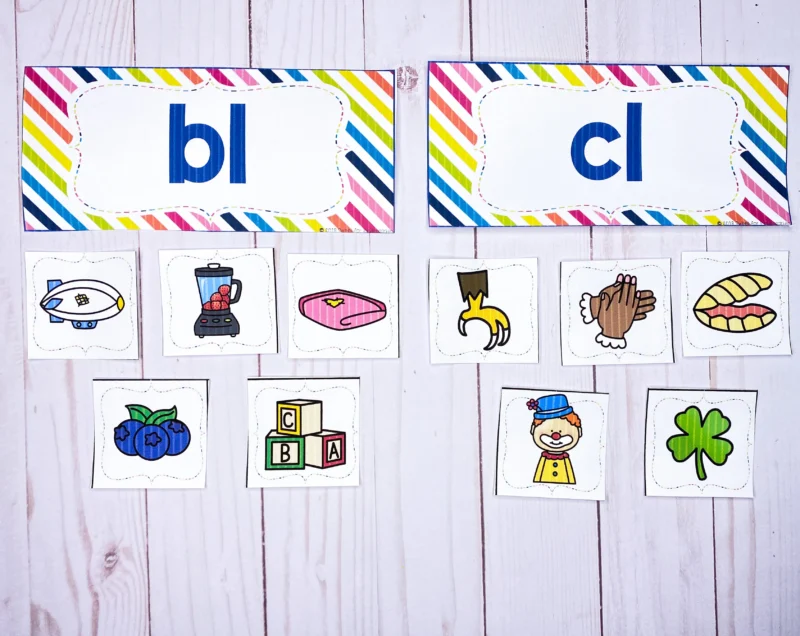
This picture-sorting activity for hearing sounds can foster vocabulary development too, making it double the fun! With a little guidance, students can practice new and familiar words while working on distinguishing sounds in words, like beginning blends.
Learn more: 5 Simple Vocabulary Activities for Kindergarten at Sweet for Kindergarten
12. Snowflake phoneme segmentation
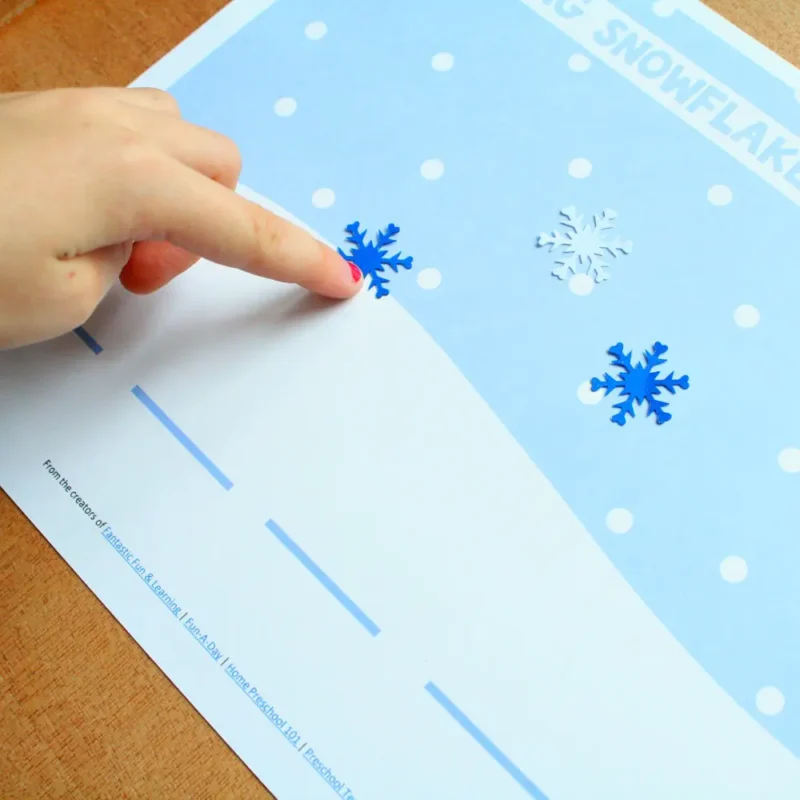
No matter the season, this hands-on activity that practices segmenting phonemes is sure to be a hit. Students drop a snowflake for every sound they hear in different words.
Learn more: Snowflake Segmentation Printable Mat at Fantastic Fun and Learning
Reading Activities for First Graders
13. Find the fish
This may be our favorite game for its versatility and ease of prep. Check out these suggestions from Susan Jones (the second half of the video focuses on literacy) for how to reinforce important literacy skills. Students search for a hidden fish behind words, letters, or picture cards. Great for practicing sight words, letter identification or sounds, decoding skills, and phoneme isolation.
Learn more: 10 Skills To Play With the Game Find the Fish at Susan Jones Teaching
14. Picture the Character
This comprehension activity is both fun and informative for first graders. Encouraging readers to use simple pictures and words to think about a character from a beloved book is a great way to boost comprehension skills. It’s always a good idea to get them started early thinking critically about books!
Learn more: Comprehension Activities for Your First Grader at Reading Rockets. Find the Picture the Character organizer on the list of student center activities at the Florida Center for Reading Research.
15. Magic E wand
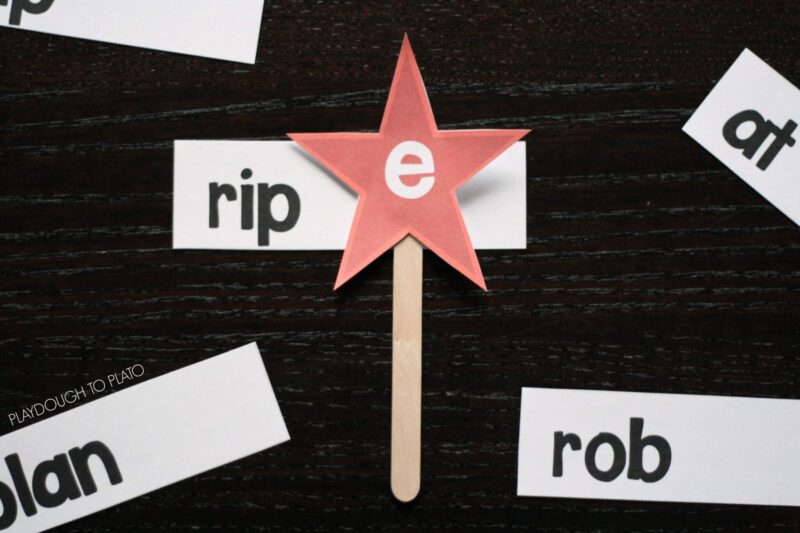
Learning the magic E is a very important first-grade reading skill and takes some practice. We love this fun activity to reinforce the idea that the “e” at the end of a one-syllable word changes the vowel to its long sound. Students will love to use “magic” to change these sounds back and forth.
Learn more: Magic E Wand at Playdough to Plato
16. Watch a phonics music video
These videos from a talented husband-and-wife duo will make tricky phonics and spelling rules especially memorable. Students will request these super-catchy and fun tunes over and over again, and you might just find yourself singing along too.
Learn more: Mrs. Siravo’s YouTube Channel at YouTube
17. Echo reading
As students become more proficient in decoding, it’s also important to focus on their fluency skills. Echo reading, or repeating what someone else has read, is an effective strategy to increase fluency. Check out this video from Reading Rockets to see echo reading, as well as partner reading and repeated reading, in action. All great ways to boost fluency.
Learn more: Fluency: Activities for Your First Grader at Reading Rockets
18. Decodable texts
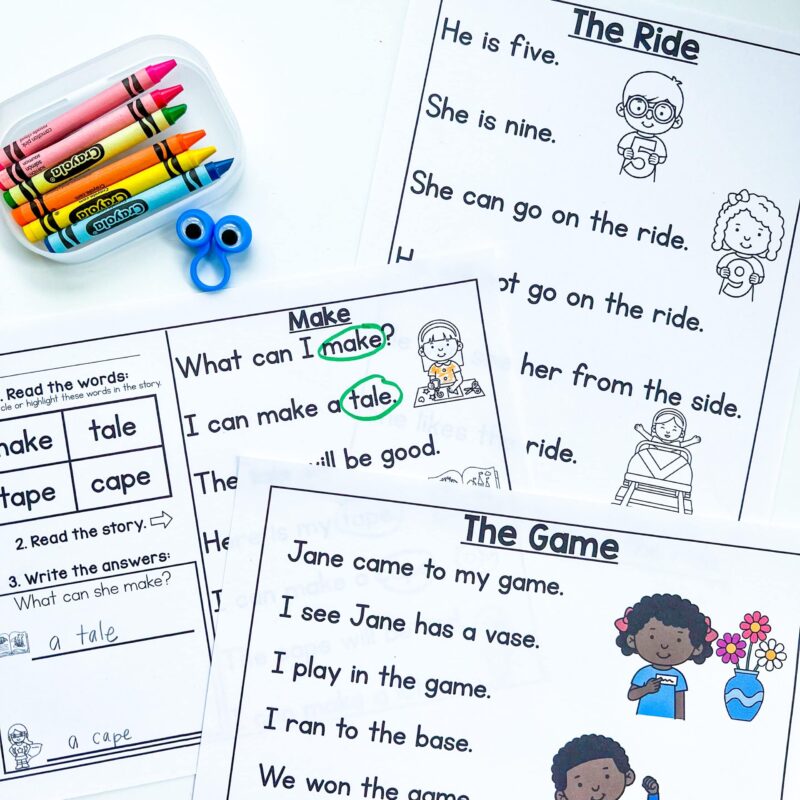
Decodable texts help students put the pieces together and apply what they are learning. There are so many great resources out there these days, making it a highly effective activity you can differentiate for any student.
Learn more: Kindergarten and 1st-grade Reading Activities at Literacy With Aylin Claahsen
Reading Activities for Second Graders
19. Reader’s Theater
If you’re looking for a fluency-boosting activity students will love, reader’s theater is a fabulous choice. With many repeated readings and plenty of opportunities for working on expression, reading a script is a high-value activity that will engage just about any reader. It can also be adapted based on the reading level and specific needs of your students.
Learn more: Reader’s Theater at Reading Rockets
20. Learn the six syllable types
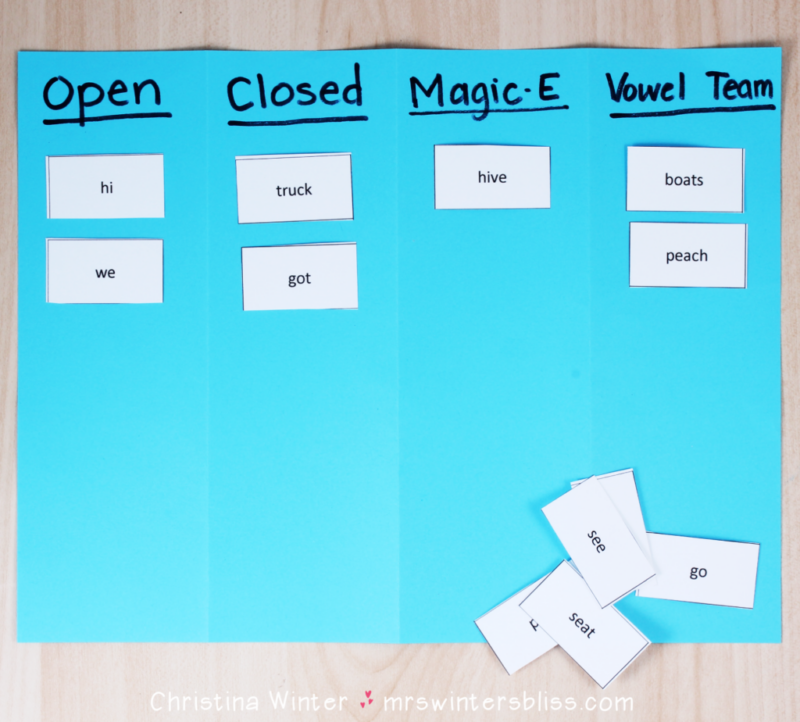
Understanding the six different types of syllables is an important part of explicit phonics instruction and helps readers decode unknown words. By the end of second grade, students should be familiar with all six. These types of syllable sorts are fun, effective ways to review and informally assess whether students are grasping the concept.
Learn more: How and Why To Teach the Six Syllable Types at Mrs. Winter’s Bliss
21. Book Clubs
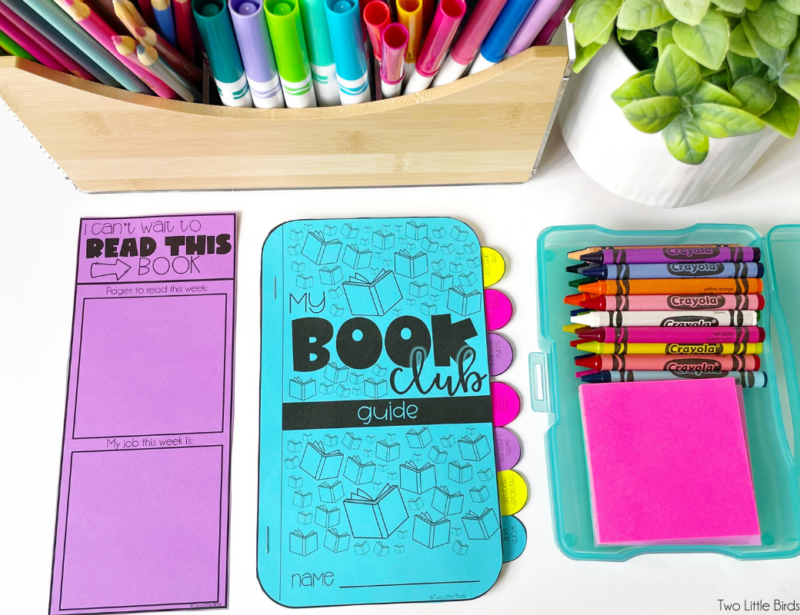
While the idea of a book club might sound daunting, they can be so valuable for newly independent readers. We love this how-to guide for making the most of book clubs for your students. Plus, check out our favorite chapter books for second graders for some extra inspiration!
Learn more: Getting Started With Book Clubs at Two Little Birds Teaching
22. Word hunt
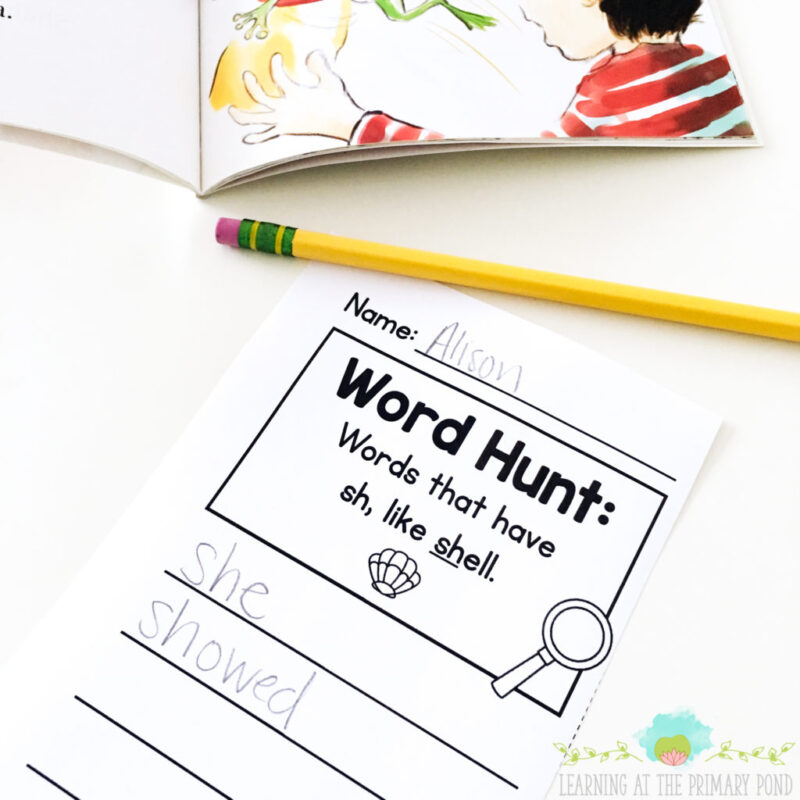
Finding specific word patterns in books and passages is one of our favorite go-to activities. Connecting word work to real text is an effective way to reinforce new phonics concepts and make them more meaningful for students.
Learn more: How To Choose Word Work Activities That Are Actually Effective at Learning at the Primary Pod
23. Fact or opinion football
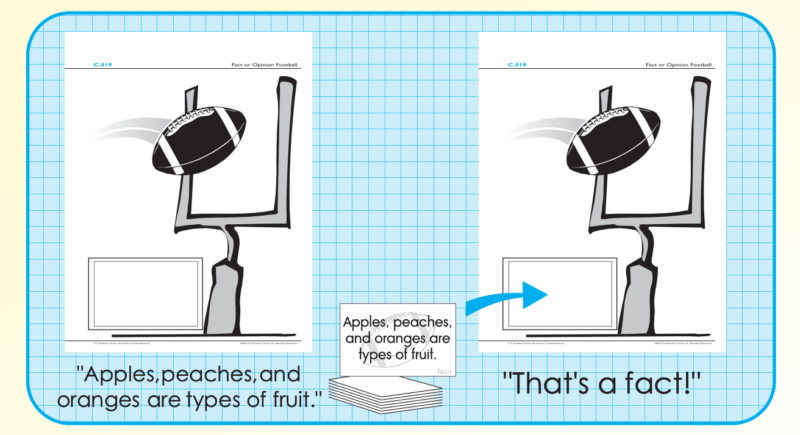
Read statements and decide if they are facts or opinions. Get it right and score a field goal!
Learn more: Fact or Opinion Football at Florida Center for Reading Research
24. Popper syllable division
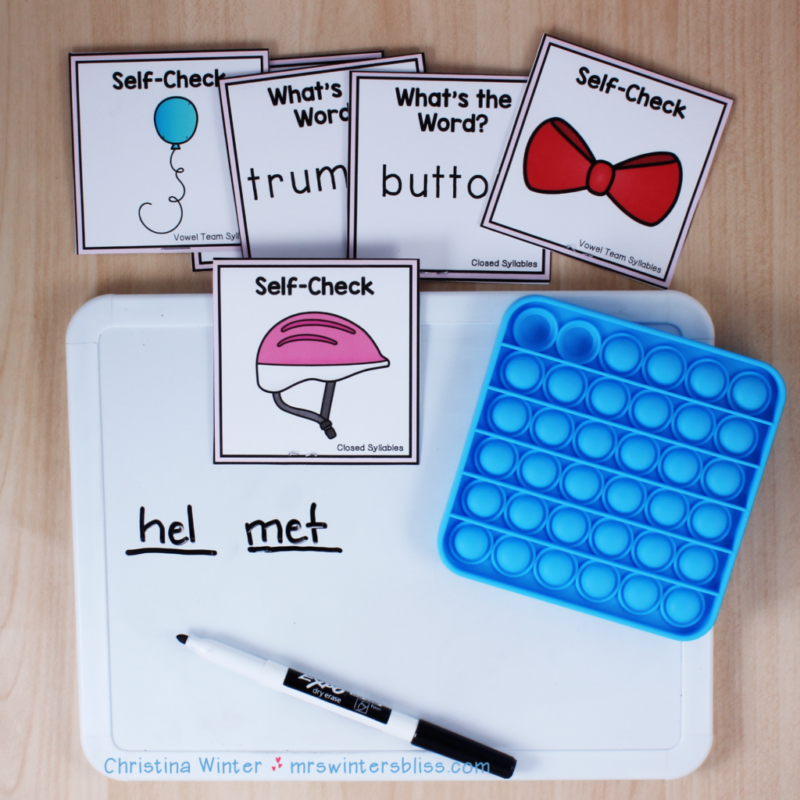
Kids just can’t get enough of these poppers and they add so much value in the classroom. Practice syllable division, another important decoding and spelling skill, by pushing down one popper for each syllable you hear in the word. Then, write the word syllable by syllable.
Learn more: How and Why To Teach the Six Syllable Types at Mrs. Winter’s Bliss
Reading Activities for Third Graders and Up
25. Book trailer
Book trailers are one of our all-time favorite reading activities for older students. With instant buy-in and engagement, this fun assignment can also serve as a valuable tool for assessing comprehension.
Learn more: Book Trailer at Literacy Is Everything
26. Spin a suffix
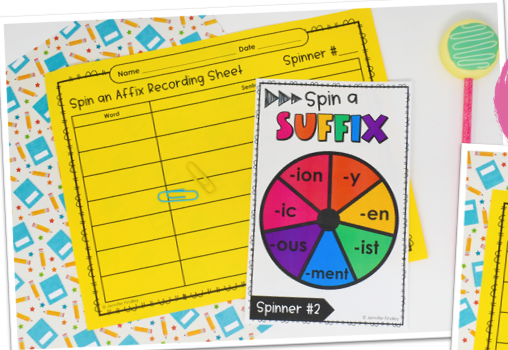
Understanding morphology, or the study of the structure of words, becomes increasingly important as students read more advanced text. Use the suffix spinner to create new words by adding a suffix to the end of a word.
Learn more: Morphology Activities for Grades 4-5 at Teaching With Jennifer Findley
27. Newsela
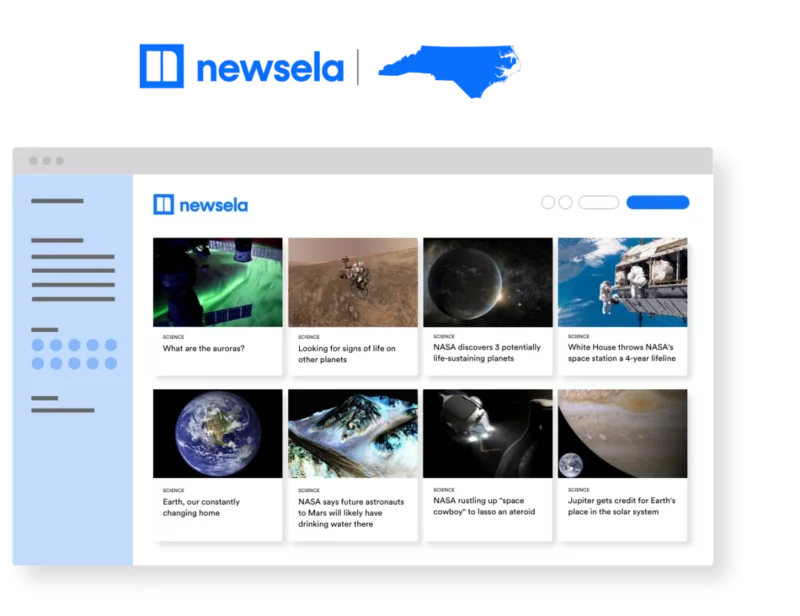
Discover engaging nonfiction news articles with varying degrees of difficulty at Newsela. You can sign up for a free account for access to so much content and resources for assessing and getting the most out of the news stories.
Learn more: Newsela
28. Creative reading task cards
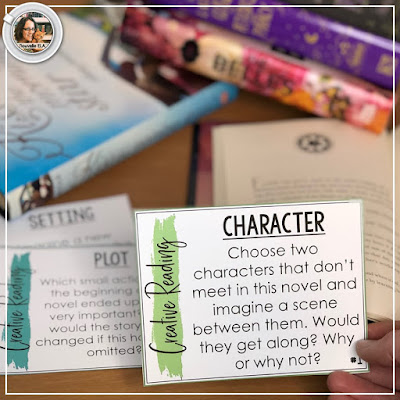
Boost comprehension and spark creativity by asking engaging and original questions about stories.
Learn more: Creative Reading Task Cards at The Secondary English Coffee Shop
29. Read aloud
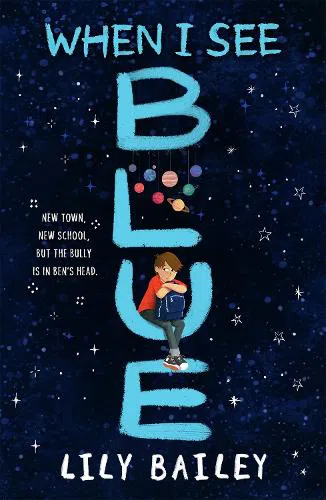
Reading aloud, even to middle and high schoolers, is so important that we just had to include it on our list twice. Talking about books is essential at any age, and we guarantee that with the right books, your students will love listening to stories. Reading aloud can even help reduce anxiety.
Learn more: 8 of the Best Middle Grade Books to Read Aloud at Book Riot
30. Explore genres
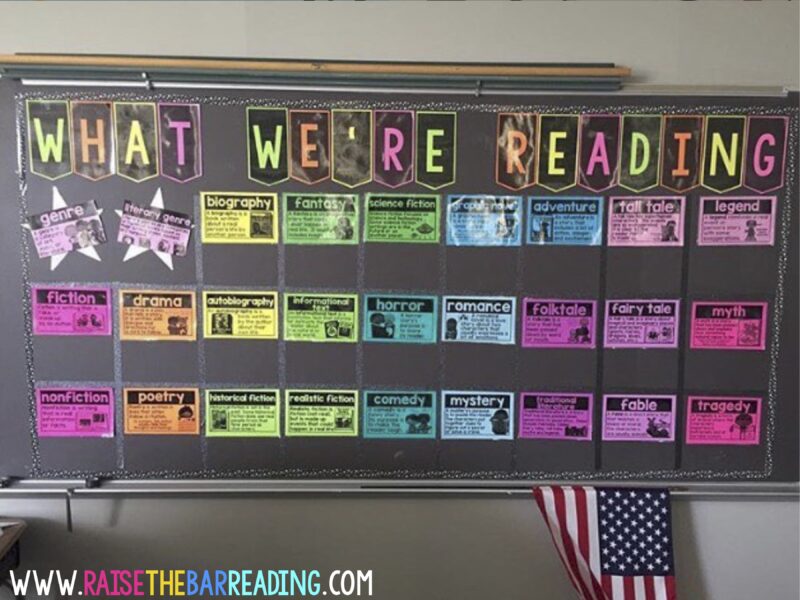
Use a chalkboard to keep track of who in your classroom is reading what genre. Once students become more proficient and are reading more advanced material, the possibilities for exploring different types of genres increase tenfold.
Learn more: Teaching Reading Genres at Raise the Bar Reading
More Reading Activities
Fantastic Reading Fluency Activities for Young Readers
Fun Phonics Activities and Games for Early Readers
Unique Reading Comprehension Activities Your Students Will Love
Kinestic Reading Activities to Get Kids Up and Moving

